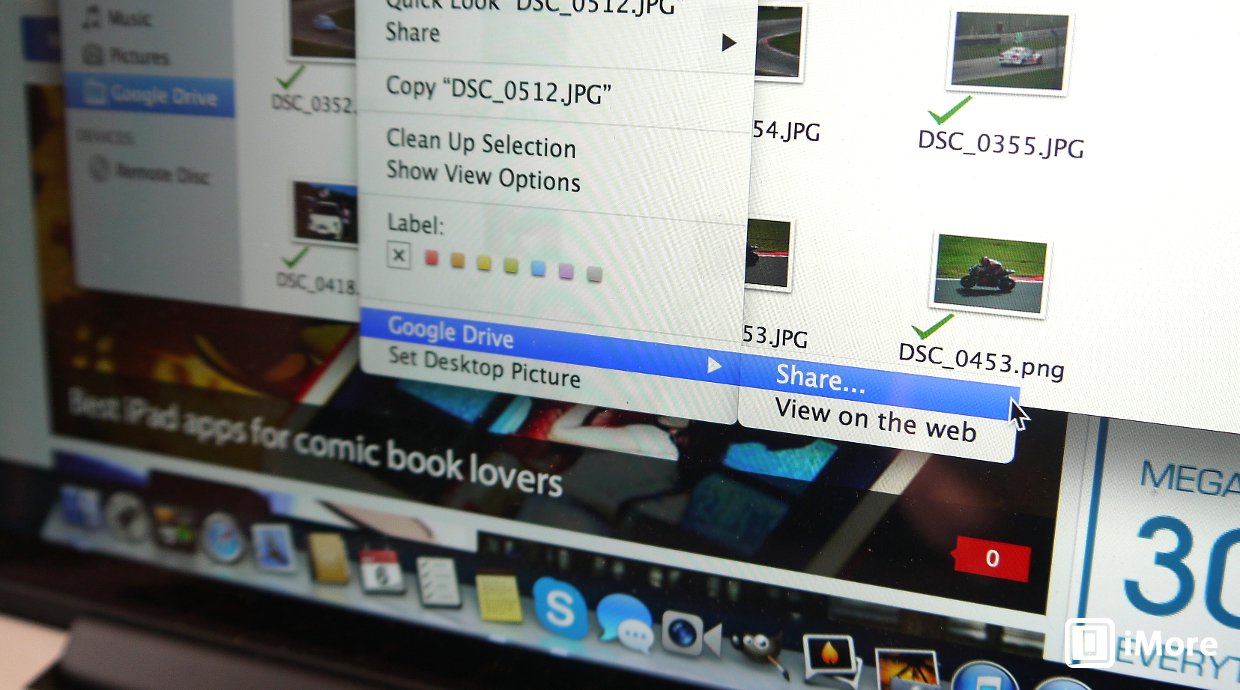Cloud or closet? What's the best way to host your company's data?

Sharing data means securing data and figuring out how best to secure your data while making it accessible everywhere is a challenge faced by every business. But if you're a small business owner, how you choose may make the difference between spending all day managing your data rather than managing your business. And how and where your data should be housed is one of the most important decisions you'll need to make.
Traditionally, file sharing meant storing files on a server that lives within the four walls of your business, which you have complete control over, and you used your local network for people to access those files. But with the proliferation of high speed internet, businesses willing to let you work from wherever you are, and a ton of cloud services available, you may not need to own your own server to make your data available to your users.
Where cloud is king
It's likely you're already using some sort of cloud-based service to store files, so you already know how this works. Apple's iCloud, Microsoft's OneDrive, DropBox, Google Drive, Citrix ShareFile, and SugarSync are all cloud-based services you use for storing, syncing, and managing your files. And if you know how these work you're 90% of the way to what you need to know about using one of these services for storing and managing your company data.
iCloud is a non-starter for business data. But it's common to see smaller companies trying to use iCloud Drive as a storage option because it's familiar and it's already on your Mac. But iCloud Drive provides no management features, requires everyone in the company to use the same Apple ID and offers nothing in the way of user and access management. If you're using it, stop. You need to look elsewhere.
OneDrive, Dropbox, Google Drive, SugarSync, and many other less well known file syncing/sharing services offer business-class versions of their software that allow you to manage access to files like you would on a server set up in your office. So, using one of these services is like using a virtual server that's available any time and any where.
The benefits of cloud services are legion. They provide redundancy, so if one of their servers goes down, your data doesn't go down with it and, in most cases, you won't know when a server is down because another server is picking up where the bad one left off. You don't necessarily need IT staff to manage the servers, although you may want some IT guidance if you're not sure how to manage access to your data. Could services also make it easier to recover accidentally deleted files. For example, Dropbox allows you to look at recently deleted files and restore them immediately. No need to run to the IT office and have them grab the backup tapes to restore the file. Plus, cloud services scale easily as your business grows, without requiring you to buy new servers to make things bigger and better. You just need to buy a license for the next user you add to your company.
The downside to cloud storage is that your files aren't under your control. And it's possible that your data is being looked at and your access to it may be limited if someone else's algorithm doesn't like what it sees. (True story folks.) So, when choosing an online hosting service for storing your business files, pay attention to the fine print.
Master your iPhone in minutes
iMore offers spot-on advice and guidance from our team of experts, with decades of Apple device experience to lean on. Learn more with iMore!
Old school (is the new, new school)
One upon a time a file server was the only way to make your files accessible to everyone in your office. Centralized storage secured in some supercooled closet that only the IT gods had access too. And, if someone outside the office needed access to that data you needed a VPN to pierce the security of your private network. Safe. Secure. Ensconced within the four walls of your business.
A server in your office is still a legit option for storing your data, and what you may be surprised to discover is that many of the features found in modern cloud services are also available when using your own server.
Beyond the obvious Microsoft server solutions, Synology, QNAP, and WD all offer Network Attached Storage (NAS) appliances that not only give you super fast access to files stored on your LAN, but they also offer cloud storage options that work like the services mentioned above, but hosted on your own server. This includes synchronization of files to local folders on your Mac, shared files, managed access, as well as dozens of other features for providing secure access to your business data for users who are outside of your business network. For example, if you want to use a VPN to for secure access to your network, these devices provide VPN access as part of their OS or via third-party software.
If you're considering hosting your own server, there some important things to keep in mind: First, your data is your responsibility. QNAP, Synology, and WD devices all offer data redundancy via RAID storage, but you need to be responsible for backing up your data and making sure it available in the event of catastrophic failure. Remember, no data = no business. So you'll want to be sure you have a good backup plan. The cloud-based services mentioned earlier have redundancy built in. When you're responsible for your servers you're also responsible for making sure your data is recoverable. You may also need some kind of permanent or part time IT staff to make sure everything is running the way it's supposed to.
Apple and file servers
Let's talk a minute about Apple, Server 5, and file serving...
Don't do it.
Sorry. Did I write that out loud?
Yeah, I did.
As of High Sierra Apple has pulled the file sharing service out of the Server app. It's now managed using the Sharing Preference in System Preferences. And... I promise you don't want to manage file sharing from there. Trust me. This is not how you want to serve files to your users.
What's the best choice for you?
As is the case with most things in life, there isn't one perfect answer. Cloud storage is convenient, secure, and almost always available, even if your business isn't. (Think hurricanes, tornadoes, fires, and other catastrophes.) No matter what, as long as you have access to the Internet you have access to your data. But... you don't have physical access to the servers that data is stored on. Self-hosted servers are right where you want them, in a closet, in your office, right next to your desk. You can see it and touch it and you know it's under your control. But if your server is down, so is your business. And when your business continues to grow, the number of servers you're using need to grow with it.
Personally, I use a combination of local servers and cloud-based storage. So, the best solution is most often the one you're comfortable with.
Where's you're sweet spot?
What are you using? What do you wish you weren't using? Have you found weaknesses with cloud-based or self-hosted services? Let us know what's working best for you.
Jeff is a writer, actor, Apple Certified Trainer, and IT consultant, born and raised in A-town and now living in NY. You can often catch him behind the scenes and on stage at County Players, Falls Theatre. Up next? He's stage managing *Cat on a Hot Tin Roof* at the aforementioned County Players.

